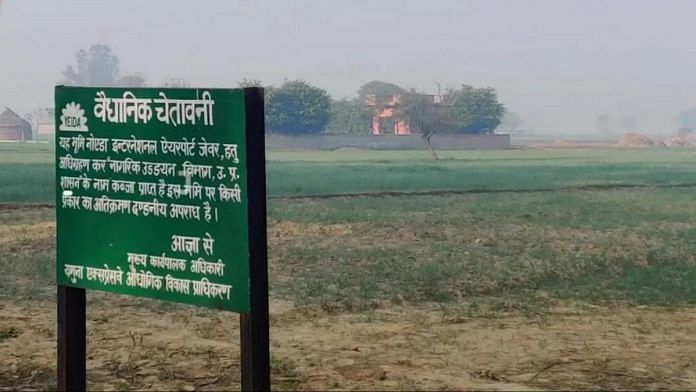New Delhi: The Narendra Modi government is likely to take the same route to push land reforms as it took for labour reforms — it plans to ask states to do it themselves.
States that have either brought in their own land acquisition laws or propose to do so will be asked to align them with the 6 March verdict of the five-judge Constitution bench of the Supreme Court, relating to compensation clauses under Section 24 (2) of the 2013 land acquisition law.
The Modi government had proposed amendments to the UPA-era law in 2015, but the amendments have been in cold storage since they ran into opposition in Parliament.
“Once a state makes changes in its own law, there will be no need for us to push for the proposed amendments in the central law,” said a senior government official, who did not want to be named.
Also read: Reduce cost of business, reform land acquisition — BJP suggests plan for post-Covid economy
The Supreme Court verdict
Section 24(2) of the 2013 Land Acquisition, Rehabilitation and Resettlement Act mandates that if the government does not pay compensation for the land that it has acquired within five years to the land owner or court, the acquisition process would lapse.
The Constitution bench of the Supreme Court, on 6 March, gave its interpretation of the section, after two contradictory verdicts given in 2014 (Pune municipality case) and 2018 (Indore development case) had left states confused.
The Constitution bench said land acquisition proceedings would not lapse as long as the government had paid the compensation, even if it was not paid directly to the landowner or the court, but deposited in the treasury. The court also said land acquisition proceedings that had been initiated under the old 1894 Act, but had not been completed, will also not lapse under the 2013 law.
Most importantly, it said land owners who refuse to accept compensation cannot press for cancellation of acquisition. The Constitution bench had held that acquisition will be deemed to have lapsed only when government agencies fail to take possession of the land and pay compensation.
With this, the apex court also overruled all its earlier judgments related to compensation.
Also read: 5-judge bench headed by Justice Arun Mishra upholds his own verdict on land compensation
Centre’s plan now
Senior officials in the Union Ministry of Rural Development, which anchors the land acquisition law, said the Constitution bench’s interpretation of Section 24(2) is in line with its own interpretation.
“Several states had also wanted this and had proposed to amend Section 24(2) of the central law. But with the Constitution bench verdict, the amendments that states wanted will no longer be needed,” a rural development ministry official told ThePrint.
A second ministry official said since the apex court has cleared the air on Section 24(2), the ministry has begun its future course of action.
“We have sought the opinion of the law ministry on whether we should accept the interpretation given by the apex court and what should be our future course of action now. Since the court’s verdict is in line with our interpretation, it is highly unlikely that the law ministry will give a contrary view,” the second official said.
The first official added that once the law ministry gives its opinion, the ministry will send an advisory to all states to amend their state laws accordingly.
So far, nine states, including Tamil Nadu, Gujarat and Maharashtra, have brought their own special land laws, or have amended the 2013 central law to suit their specific requirements.
Modi govt’s amendments
In 2015, the Modi government had introduced nine amendments to the 2013 law passed by Manmohan Singh’s UPA-2 government. The amendments put before Parliament included doing away with the contentious clause to seek consent of farmers for five types of projects — defence, rural infrastructure, affordable housing, industrial corridors and infrastructure projects, including social infrastructure.
After the bill ran into stiff opposition in Parliament, the government pushed two ordinances, but did not press further after the ordinances lapsed.
It instead told the states they were free to bring their own land laws or amend the central law.
With the matter reaching the Supreme Court and conflicting verdicts coming in, the majority of the states adopted a wait-and-watch policy till a final verdict brought clarity.
Also read: Why a section of the Land Acquisition Act turned into a big judicial controversy



